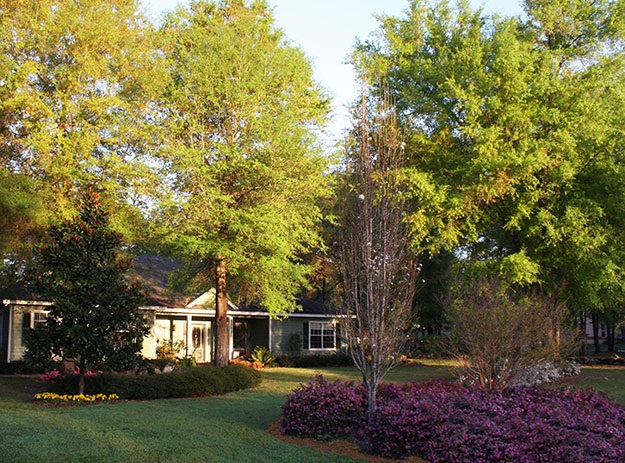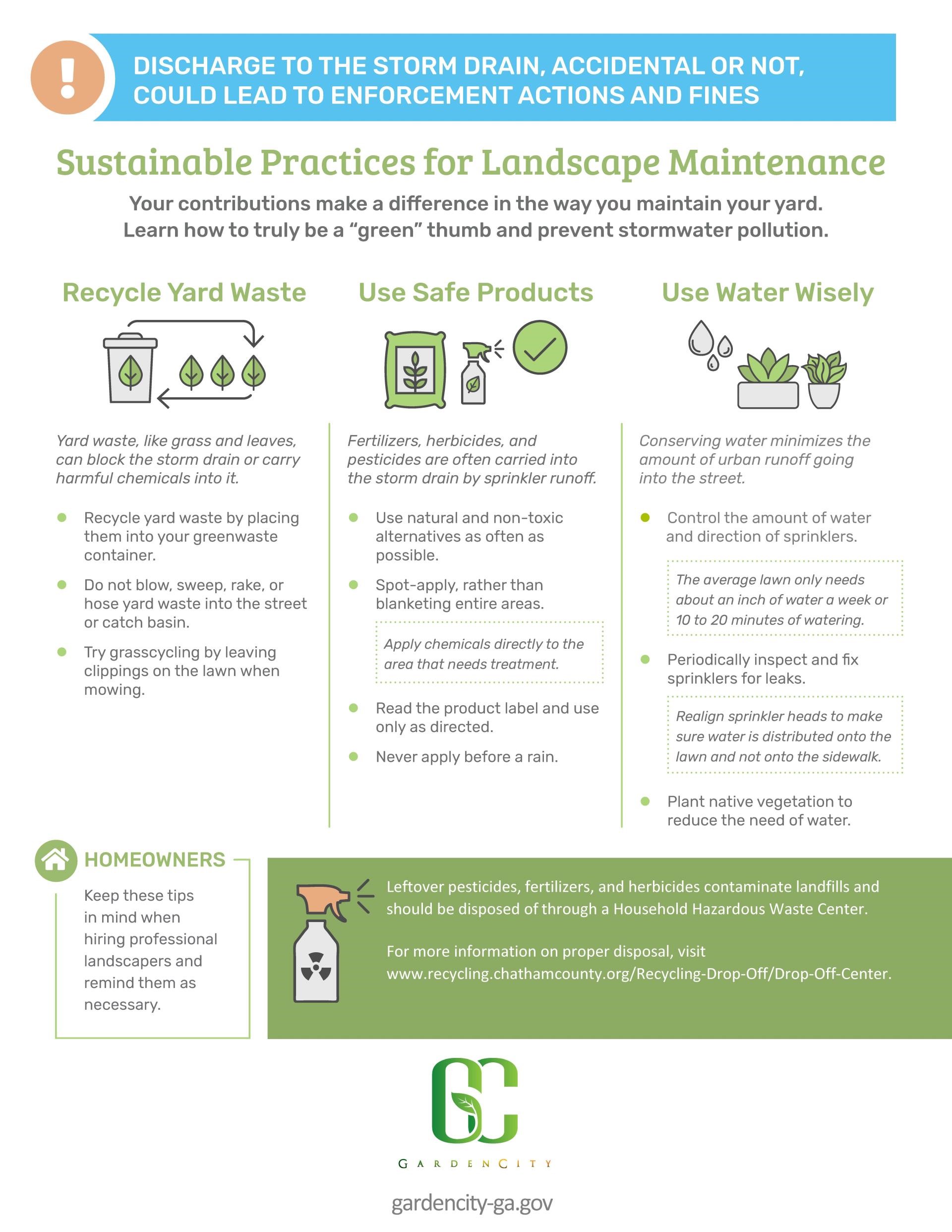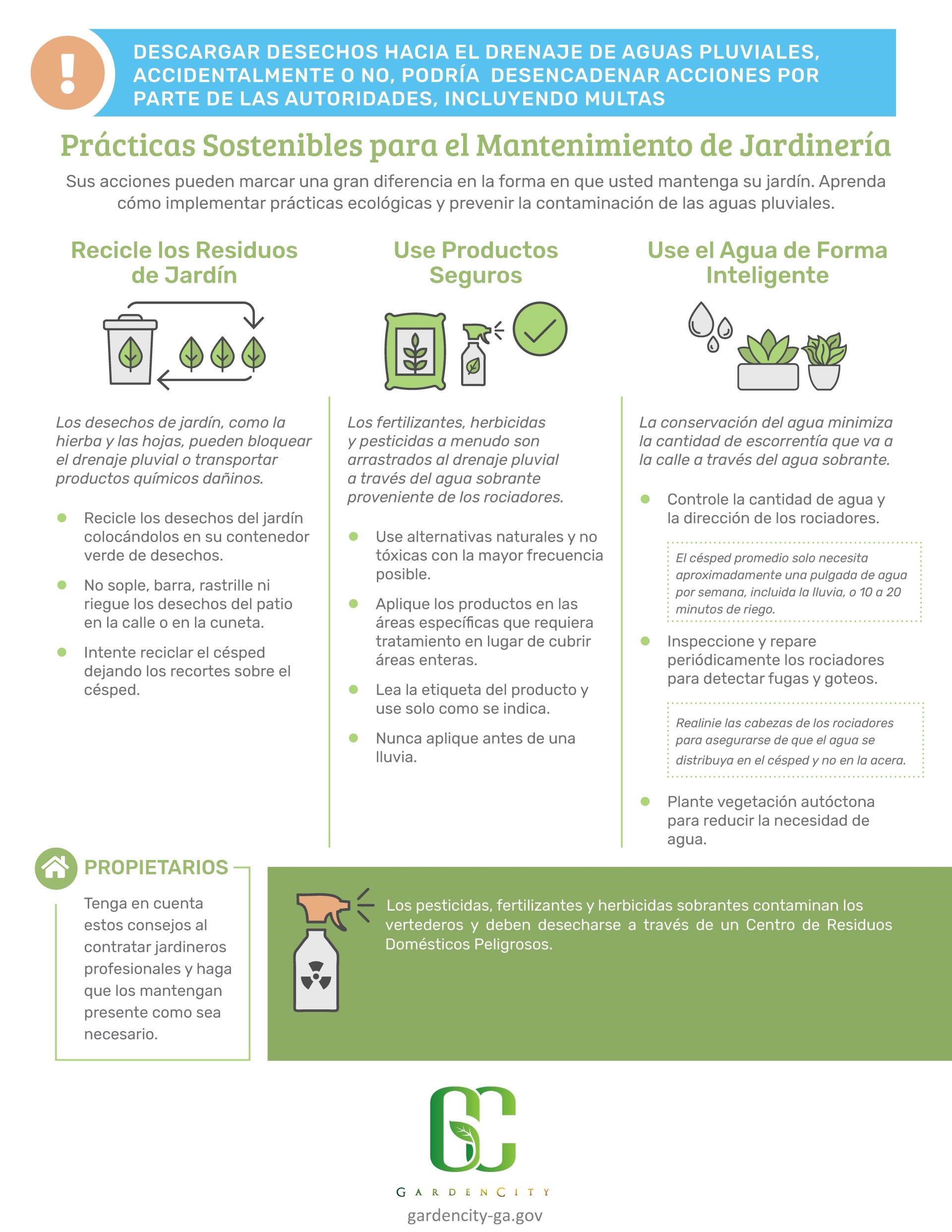Sustainable Landscaping
EcoScapes engages Georgians in sustainable land use practices that help conserve water resources, native plants, habitats and wildlife. These critical elements are needed to preserve the complex web of life that characterizes Georgia.
Sustainable native plant landscapes benefit people, wildlife, and all coastal Georgia. When we create sustainable native plant landscapes, the landscapes work with nature to give back, providing natural benefits that are essential to daily life, such as reducing pollution while creating diverse landscapes that conserve water, protect clean water and air; support wildlife habitat and biological diversity; support pollination; provide erosion, sediment, and flood control; and provide a more beautiful, healthier human environment.
Sustainable landscapes are the key to creating, enhancing, restoring, and conserving natural habitats that meet our needs without compromising future generations. In addition, sustainable landscapes provide valuable opportunities to reduce the effects of the human built and developed environment.
Xeriscape (Waterwise Landscaping)

Xeriscape is a simple, seven-step approach to developing a lush but water-wise landscape. The beauty of this method is that it not only saves water, but it saves time, energy and money. The added benefit of xeriscaping is that less maintenance is required — less fertilizing, less pruning, less weeding and less mowing. This leaves more time for summer fun.
A Xeriscape landscape follows 7 steps:
- Planning and Design
- Soil Analysis
- Appropriate Plant Selection
- Practical Turf Areas
- Efficient Irrigation
- Use of Mulches (and where to get free mulch)
- Appropriate Maintenance
Comprehensive outreach tools and resources to engage Georgians in sustainable landscaping practices are available to help preserve the coast's water resources, plants, habitats and wildlife; all of which are critical elements needed to nurture and preserve the complex web of life that characterizes coastal Georgia and its surrounding watersheds. In addition, as the coastal region begins to accommodate rapidly expanding urban growth, EcoScapes is working to help mitigate negative environmental impacts by promoting the adoption of comprehensive conservation landscaping concepts and practices. For more information, visit the EcoScapes website.

